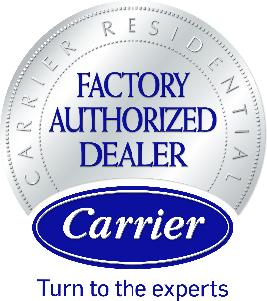If you remove the grill that covers your HVAC system’s primary return air duct, you’ll find a flat, square screen that’s probably covered with a decent collection of dust and debris.
Unless that screen hasn’t been changed for a long time—or ever—in which case the collection of dust and debris is likely to be quite substantial.
The screen you’re looking at is your HVAC’s air filter, and the fuzzy gray stuff that blankets its surface is potentially breathable pollution that’s been removed from your home’s air space.
You may not have known it, but those air filters are supposed to be changed regularly, perhaps as often as every other month, and if you leave them in too long, they’ll stop capturing contaminants that can trigger allergies, asthma, and general respiratory distress and many other symptoms of illness.
Clogged air filters will also put extra stress on your HVAC equipment, forcing it to work harder and increasing your energy costs in the process.
HVAC Air Filter Options
If you haven’t been changing your HVAC air filters now is the time to start. It’s not hard to do and new filters are usually not as expensive as you might think, although obviously, you’ll have to pay more to get something good. But better air filters will last longer and that might make the extra investment worthwhile.
Here are the most popular air filter options:
- Fiberglass panel filters: These are the cheapest HVAC air filters, which has helped make them a best seller. But they only trap larger particles and will clog up so quickly that they’re virtually useless beyond two months (at the most).
- Electrostatic air filters: They are not as efficient as some other options, but they never clog or block air flow and sometimes come in models that allow for cleaning rather than disposal.
- Media air filters: Not as well-known as most options, highly efficient media filters are the preferred choice of HVAC professionals, who often stock and supply them directly. As you might imagine they’re more expensive than most air filters.
- Pleated air filters: Very popular among those who want something better than fiberglass but don’t want to pay an arm and a leg, pleated filters are fairly similar to media filters but must be changed more often.
- HEPA (High-Efficiency Particulate Air) filters: More expensive than most, but with air filters you get what you pay for. HEPA filters will capture up to 99 percent of mold spores, pollen, allergen, pet dander, and small dust particles, making them the best choice for those with allergies.
- Activated carbon air filters: A special type of air filter for use in buildings with heavy bad odor problems.
Never Neglect Your Air Filters
Clogged HVAC air filters will compromise your indoor air quality and your health in the process, and if you’ve been ignoring them up until now that is a habit you should work very hard to break. If changed on schedule HVAC air filters work quite well, especially if you select a better option than the cheapest.
To find out more speak to a representative from your HVAC contractor, he or she will be able to explain the pros and cons of each type of air filter.
Continue to follow Sheldon's Heating & Air Conditioning for more informal discussions about HVAC systems and the value of good indoor air quality.



